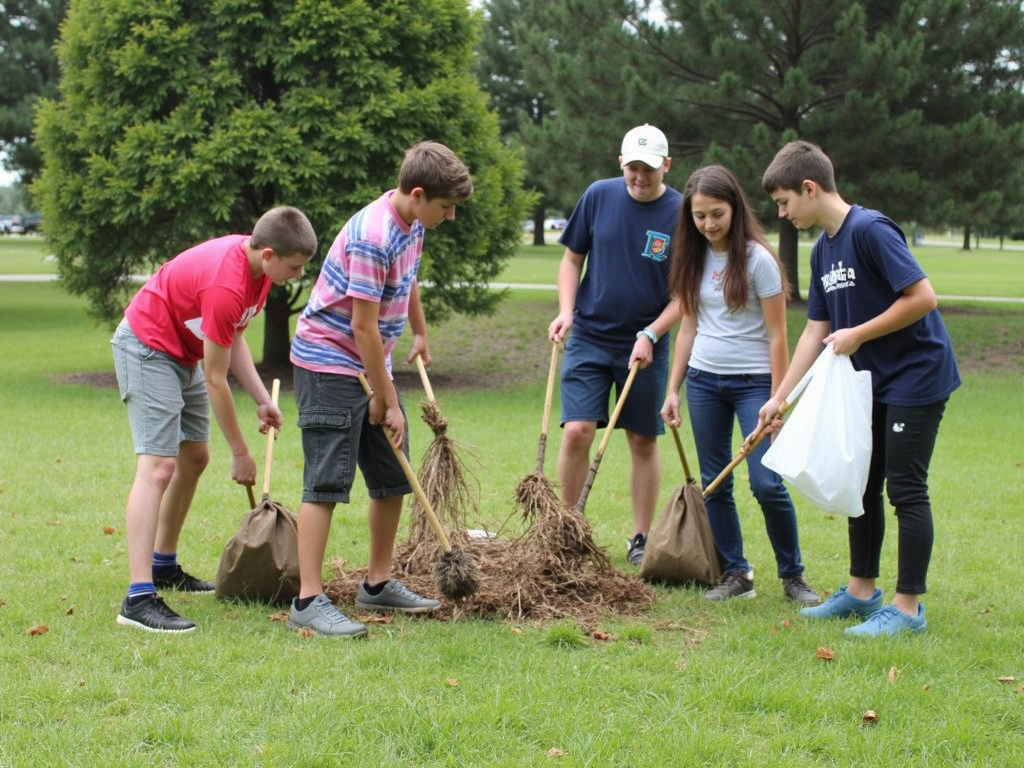Why Teamwork Matters in Leadership
By , March 22, 2025
Teamwork and leadership go hand in hand. Effective leaders know that building a strong team is key to success. Whether in business, sports, or community projects, teamwork makes goals achievable. This article explores why teamwork is vital in leadership and how volunteerism and service learning can help develop these skills.

What is Teamwork in Leadership?
Teamwork in leadership means guiding a group to work together toward a common goal. Leaders must communicate clearly, delegate tasks, and resolve conflicts. They create an environment where everyone feels valued. Teamwork boosts creativity, problem-solving, and productivity. Without it, even the best leaders struggle to achieve results.
Why Teamwork is Essential for Leaders
Leaders need teamwork for several reasons:
- Shared Responsibility: Leaders can't do everything alone. Teamwork allows tasks to be shared, making work more efficient.
- Diverse Perspectives: Teams bring different ideas and solutions. This diversity leads to better decision-making.
- Motivation and Support: Team members encourage each other. This support helps everyone stay focused and motivated.
- Skill Development: Working in a team helps individuals learn new skills from others. Leaders can identify and nurture these skills.
Teamwork turns a group of individuals into a cohesive unit, capable of achieving more together.

Fostering Leadership Skills Through Volunteerism
Volunteerism is a powerful way to develop leadership skills. When you volunteer, you often work with diverse groups on community projects. This experience teaches you to communicate effectively, solve problems, and lead by example.
For instance, I once volunteered for a local food drive. I had to organize a team, assign tasks, and ensure everything ran smoothly. It was challenging, but I learned how to motivate others and make quick decisions. These are key leadership skills that I still use today.
Service Learning and Civic Engagement
Service learning combines academic study with community service. It’s a hands-on way to apply what you learn in the classroom to real-world situations. Civic engagement, which includes activities like voting and community organizing, also plays a role in developing leadership.
Through service learning, you can take on leadership roles in projects that benefit your community. This not only helps others but also builds your confidence and leadership abilities. For example, leading a recycling initiative at school teaches you how to manage a team and achieve a common goal.

Benefits of Teamwork in Leadership
Here’s a quick look at the benefits of teamwork in leadership:
| Aspect | With Teamwork | Without Teamwork |
|---|---|---|
| Efficiency | Tasks are completed faster | Tasks take longer due to lack of support |
| Creativity | More ideas and solutions | Limited perspectives |
| Morale | High, with mutual support | Low, with individuals feeling isolated |
| Skill Development | Opportunities to learn from others | Limited growth opportunities |
Teamwork clearly offers advantages that individual efforts cannot match.
How to Build Teamwork in Leadership
Building teamwork requires effort and strategy. Here are some tips:
- Set Clear Goals: Everyone should know what the team is working toward.
- Communicate Openly: Encourage team members to share ideas and feedback.
- Recognize Contributions: Acknowledge the efforts of each team member.
- Foster Trust: Build trust by being reliable and supportive.
- Lead by Example: Show the behavior you expect from your team.
These steps create a positive team environment where everyone can thrive.

Personal Insights: Learning Leadership Through Teamwork
I’ve learned that leadership isn’t just about giving orders. It’s about listening, supporting, and empowering others. In my volunteer work, I’ve seen how teamwork can turn a challenging project into a rewarding experience. For example, during a community clean-up, our team faced bad weather and limited resources. But by working together and staying positive, we completed the task successfully. This taught me the value of resilience and collaboration in leadership.
The Role of Service Learning in Leadership Development
Service learning is more than just volunteering. It’s about reflecting on your experiences and understanding how they shape you as a leader. When you participate in service learning, you’re not only helping others but also growing personally and professionally. This growth is crucial for becoming an effective leader.
For instance, organizing a charity event as part of a service learning project can teach you project management, teamwork, and communication skills. These are all essential for leadership.

Conclusion
Teamwork is the backbone of effective leadership. It allows leaders to achieve more, fosters a supportive environment, and helps develop essential skills. Volunteerism and service learning are excellent ways to build these skills while making a positive impact on the community. By embracing teamwork, leaders can create stronger, more successful teams.
Remember, leadership is not a solo journey. It’s about bringing people together to achieve something greater than themselves.